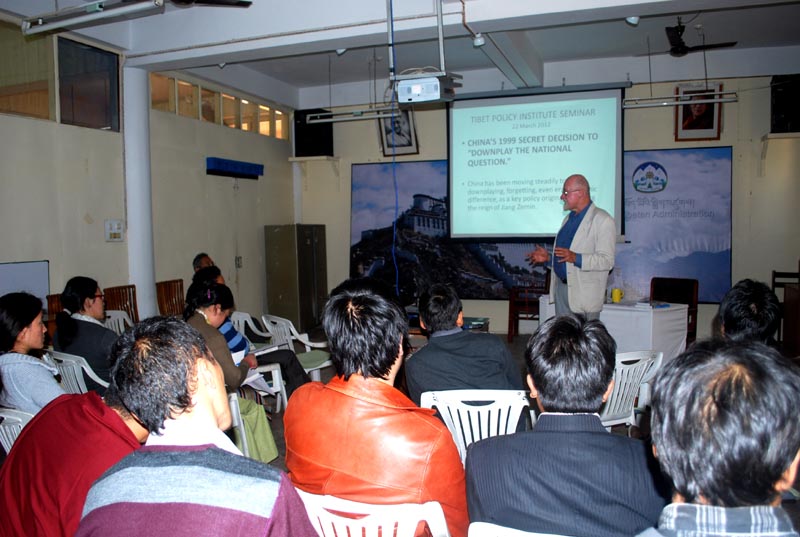Over the last twenty years, PRC has gradually implemented policies to erase Tibetan identity and promote a national, overreaching Chinese identity.
Primarily in response to the collapse of the Soviet Union at the hands of ethnic division, China has strived to downplay and forget its own ethnic differences, in favor of an overreaching national identity.
The 1984 law on Minority Regional Autonomy was deemed as giving ethnic groups too many rights and thus as a predecessor to "Soviet style dissolution of states".
PRC determined that the increased rights of ethnic minorities seriously threatened the authority of the central government and thus must be contained.
In 2001, the Law on Autonomy was revised and a new law was passed, the National Commonly Used Language and Script law. These two laws
"downplayed the role of minority languages and cultures while promoting...Mandarin as the super language".
Now, "everyone is a member of the Chinese nation, a category that supersedes the separate ethnic nationalities". Thus, Tibetan ethnicity has been reduced to a personal identity, a matter of choice rather than a defined status under Chinese rule.
While Tibetans have subsequently lost much of their autonomy, the culture surrounding them has retained its discriminatory nature, especially towards those wearing monks robes.
China is striving towards a western, multicultural model. However, China lacks the capacity for free speech and relative democracy that the West exhibits. The central leaders address the "Tibetan problem" with the solution of development and assimilation.
Yet, development theory is inherently flawed because it assumes all subjected cultures desire the consumerist culture of the West". Admittedly, it is quite late for China to attempt assimilation of the Tibetan people as well.
"Evidence suggests strongly that six decades of the Soviet model only strengthened Tibetan identity, revalidated Tibetan culture, history, values, language, and solidarity"...It has strengthened above all else, the reverence of Tibetans for HH the Dalai Lama, and for kudrak high culture generally".
This new shift in Chinese policy towards the Tibetan population is only a repositioning of the inherently oppressive policies of the last 60 years and will undoubtedly only exacerbate the situation as Tibetan identity becomes increasingly developed, at home and in exile.
Edited by Elizabeth Delehant, The Tibet Post International. Please click here to visit the full text.


![Tibet has a rich history as a sovereign nation until the 1950s when it was invaded by China. [Photo: File]](/images/stories/Pics-2024/March/Tibet-Nation-1940s.jpg#joomlaImage://local-images/stories/Pics-2024/March/Tibet-Nation-1940s.jpg?width=1489&height=878)
















